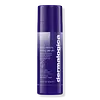What's inside
What's inside
 Key Ingredients
Key Ingredients

 Benefits
Benefits

 Concerns
Concerns

 Ingredients Side-by-side
Ingredients Side-by-side

Water
Skin ConditioningSqualane
EmollientGlycerin
HumectantHexyldecanol
EmollientPropanediol
SolventDimethyl Isosorbide
SolventHydroxyethyl Acrylate/Sodium Acryloyldimethyl Taurate Copolymer
Emulsion StabilisingHydroxyacetophenone
AntioxidantHydroxypinacolone Retinoate
Skin ConditioningRetinol
Skin ConditioningHelianthus Annuus Seed Oil
EmollientRosmarinus Officinalis Leaf Extract
AntimicrobialPelargonium Graveolens Flower Oil
MaskingAniba Rosodora Wood Oil
AstringentEucalyptus Globulus Leaf Oil
PerfumingSantalum Album Oil
MaskingOryza Sativa Bran Extract
Skin ConditioningHelianthus Annuus Extract
EmollientCupressus Sempervirens Oil
MaskingJuniperus Virginiana Oil
MaskingAbies Sibirica Oil
MaskingTocopherol
AntioxidantBeta-Glucan
Skin ConditioningCaprylyl Glycol
EmollientBHT
AntioxidantCeramide NP
Skin ConditioningCaprylic/Capric Triglyceride
MaskingCetyl Palmitate
Emollient1,2-Hexanediol
Skin ConditioningEthylhexylglycerin
Skin ConditioningPolysorbate 60
EmulsifyingTetrasodium Glutamate Diacetate
Hydroxystearic Acid
CleansingPolysorbate 20
EmulsifyingSorbitan Isostearate
EmulsifyingLaureth-23
CleansingTrideceth-6 Phosphate
EmulsifyingSodium Hydroxide
BufferingCitric Acid
BufferingPolyacrylate Crosspolymer-6
Emulsion StabilisingSodium Benzoate
MaskingBenzyl Alcohol
PerfumingLinalool
PerfumingWater, Squalane, Glycerin, Hexyldecanol, Propanediol, Dimethyl Isosorbide, Hydroxyethyl Acrylate/Sodium Acryloyldimethyl Taurate Copolymer, Hydroxyacetophenone, Hydroxypinacolone Retinoate, Retinol, Helianthus Annuus Seed Oil, Rosmarinus Officinalis Leaf Extract, Pelargonium Graveolens Flower Oil, Aniba Rosodora Wood Oil, Eucalyptus Globulus Leaf Oil, Santalum Album Oil, Oryza Sativa Bran Extract, Helianthus Annuus Extract, Cupressus Sempervirens Oil, Juniperus Virginiana Oil, Abies Sibirica Oil, Tocopherol, Beta-Glucan, Caprylyl Glycol, BHT, Ceramide NP, Caprylic/Capric Triglyceride, Cetyl Palmitate, 1,2-Hexanediol, Ethylhexylglycerin, Polysorbate 60, Tetrasodium Glutamate Diacetate, Hydroxystearic Acid, Polysorbate 20, Sorbitan Isostearate, Laureth-23, Trideceth-6 Phosphate, Sodium Hydroxide, Citric Acid, Polyacrylate Crosspolymer-6, Sodium Benzoate, Benzyl Alcohol, Linalool
Isoamyl Laurate
EmollientOctyldodecanol
EmollientIsohexadecane
EmollientDiheptyl Succinate
EmollientCapryloyl Glycerin/Sebacic Acid Copolymer
Skin ConditioningSilica Silylate
EmollientPentaclethra Macroloba Seed Oil
EmollientPseudozyma Epicola/Camellia Sinensis Seed Oil Ferment Extract Filtrate
HumectantSpilanthes Acmella Flower Extract
Skin ConditioningAstragalus Membranaceus Root Extract
EmollientCurcuma Longa Root Extract
MaskingMelia Azadirachta Leaf
Skin ConditioningEclipta Prostrata Extract
Skin ConditioningEclipta Prostrata Leaf Extract
Skin ConditioningCorallina Officinalis Extract
Skin ConditioningMelia Azadirachta Bark Extract
AntimicrobialMoringa Oleifera Seed Oil
EmollientOcimum Basilicum Flower/Leaf Extract
TonicOcimum Sanctum Leaf Extract
Skin ConditioningEthylcellulose
Carthamus Tinctorius Seed Oil
MaskingHydroxyacetophenone
AntioxidantCaprylic/Capric Triglyceride
MaskingLavandula Hybrida Oil
EmollientLavandula Spica Flower Oil
MaskingMelia Azadirachta Flower Extract
Skin ConditioningEucalyptus Globulus Leaf Oil
PerfumingHydroxymethoxyphenyl Decanone
Skin ConditioningUbiquinone
AntioxidantWater
Skin ConditioningLinalool
PerfumingLimonene
PerfumingTocopherol
AntioxidantGeraniol
PerfumingIsoamyl Laurate, Octyldodecanol, Isohexadecane, Diheptyl Succinate, Capryloyl Glycerin/Sebacic Acid Copolymer, Silica Silylate, Pentaclethra Macroloba Seed Oil, Pseudozyma Epicola/Camellia Sinensis Seed Oil Ferment Extract Filtrate, Spilanthes Acmella Flower Extract, Astragalus Membranaceus Root Extract, Curcuma Longa Root Extract, Melia Azadirachta Leaf, Eclipta Prostrata Extract, Eclipta Prostrata Leaf Extract, Corallina Officinalis Extract, Melia Azadirachta Bark Extract, Moringa Oleifera Seed Oil, Ocimum Basilicum Flower/Leaf Extract, Ocimum Sanctum Leaf Extract, Ethylcellulose, Carthamus Tinctorius Seed Oil, Hydroxyacetophenone, Caprylic/Capric Triglyceride, Lavandula Hybrida Oil, Lavandula Spica Flower Oil, Melia Azadirachta Flower Extract, Eucalyptus Globulus Leaf Oil, Hydroxymethoxyphenyl Decanone, Ubiquinone, Water, Linalool, Limonene, Tocopherol, Geraniol
Alternatives
Ingredients Explained
These ingredients are found in both products.
Ingredients higher up in an ingredient list are typically present in a larger amount.
This ingredient is an emollient, solvent, and texture enhancer. It is considered a skin-softener by helping the skin prevent moisture loss.
It helps thicken a product's formula and makes it easier to spread by dissolving clumping compounds.
Caprylic Triglyceride is made by combining glycerin with coconut oil, forming a clear liquid.
While there is an assumption Caprylic Triglyceride can clog pores due to it being derived from coconut oil, there is no research supporting this.
Learn more about Caprylic/Capric TriglycerideThis oil is derived from the leaves of Eucalyptus Globulus, a type of Eucalyptus tree native to Australia.
Though this oil shows antibacterial and antioxidant activity, it is also a known skin-irritant due to its fragrance components.
Hydroxyacetophenone is antioxidant with skin conditioning and soothing properties. It also boosts the efficiency of preservatives.
This ingredient is not irritating or sensitizing.
Linalool is a fragrance and helps add scent to products. It's derived from common plants such as cinnamon, mint, citrus, and lavender.
Like Limonene, this ingredient oxidizes when exposed to air. Oxidized linalool can cause allergies and skin sensitivity.
This ingredient has a scent that is floral, spicy tropical, and citrus-like.
Learn more about LinaloolTocopherol (also known as Vitamin E) is a common antioxidant used to help protect the skin from free-radicals and strengthen the skin barrier. It's also fat soluble - this means our skin is great at absorbing it.
Vitamin E also helps keep your natural skin lipids healthy. Your lipid skin barrier naturally consists of lipids, ceramides, and fatty acids. Vitamin E offers extra protection for your skin’s lipid barrier, keeping your skin healthy and nourished.
Another benefit is a bit of UV protection. Vitamin E helps reduce the damage caused by UVB rays. (It should not replace your sunscreen). Combining it with Vitamin C can decrease sunburned cells and hyperpigmentation after UV exposure.
You might have noticed Vitamin E + C often paired together. This is because it is great at stabilizing Vitamin C. Using the two together helps increase the effectiveness of both ingredients.
There are often claims that Vitamin E can reduce/prevent scarring, but these claims haven't been confirmed by scientific research.
Learn more about TocopherolWater. It's the most common cosmetic ingredient of all. You'll usually see it at the top of ingredient lists, meaning that it makes up the largest part of the product.
So why is it so popular? Water most often acts as a solvent - this means that it helps dissolve other ingredients into the formulation.
You'll also recognize water as that liquid we all need to stay alive. If you see this, drink a glass of water. Stay hydrated!
Learn more about Water